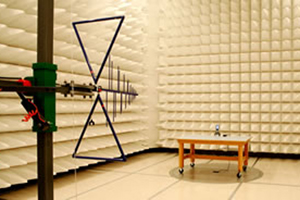Electromagnetic compatibility (EMC) is defined as any effect on the generation, transmission and reception of electromagnetic energy. Today, electromagnetic compatibility is considered a very important criterion for the marketing of an electronic product and standards have been developed in this regard. If a product does not meet the electromagnetic compatibility requirements of any country, it is not possible to sell the product in that country.
As technology evolves, the issue of electromagnetic compatibility in the design of electronic devices or systems has become an important design criterion, along with other traditional design criteria. EMC standardsAfter 1996, it has become mandatory for all electronic tools. For this reason, manufacturers who want to sell their products, after producing the electrical or electronic equipment EMC tests, if the results are positive, they can put the CE mark on the vehicles.
Within the scope of the new approach directives issued by the European Union, the regulations that the machines are generally subject to are:
• 2006 / 42 / AT Machinery Safety Regulations
• 2006 / 95 / AT Low Voltage Directive (LVD)
• 2004 / 108 / AT Electromagnetic Compatibility Regulation (EMC)
Within the scope of these regulations, the studies to be carried out within the scope of the Electromagnetic Compatibility (EMC) of 2004 / 108 / AT are as follows:
• TS EN 61000-6-2 standard electrical tests (Electromagnetic compatibility - Part 6-2: General standards - Immunity for industrial environments)
• TS EN 61000-6-4 standard electrical tests (Electromagnetic compatibility - Part 6-4: General standards - Diffusion standard for industrial environments)
• Inspection of machine conformity assessment
These tests and inspections are carried out by various institutions and laboratories. These organizations, EMC tests in addition to other technical services. However, they need to be accredited from other national or international accreditation bodies. If this is not the case, the reports they will prepare at the end of their examination and test work will have no validity.
Electromagnetic compatibility There are various tests at vehicle level and system level. The criteria used in these tests were determined as EMC standards. These standards are the main determinants of the electromagnetic quality of the product. The standards include two important elements: test limit values and test methods.
The Electromagnetic Compatibility Directive (EMC), issued by the European Union, sets out the basic requirements that apply to all electrical and electronic equipment that, during operation, may be impaired by other electronic devices or which may be affected by and deteriorated by electronic devices. EMC tests are a series of test series, but they demonstrate their compatibility with each other during operation.
EMC tests are generally performed and evaluated on the basis of the relevant standards. There are two basic tests for electromagnetic compatibility: electromagnetic interference and immunity.
The TÜRCERT certification body conducts EMC tests among various inspection and test studies. It is especially important for companies that put CE label on their products to have their products tested, in order to prevent subsequent disputes. Products with the CE label on them can be collected from the market if they do not meet the requirements of the relevant standards.
EMC Electromagnetic Compatibility Test TÜRCERT certification company with its experienced and expert staff is always with you.

